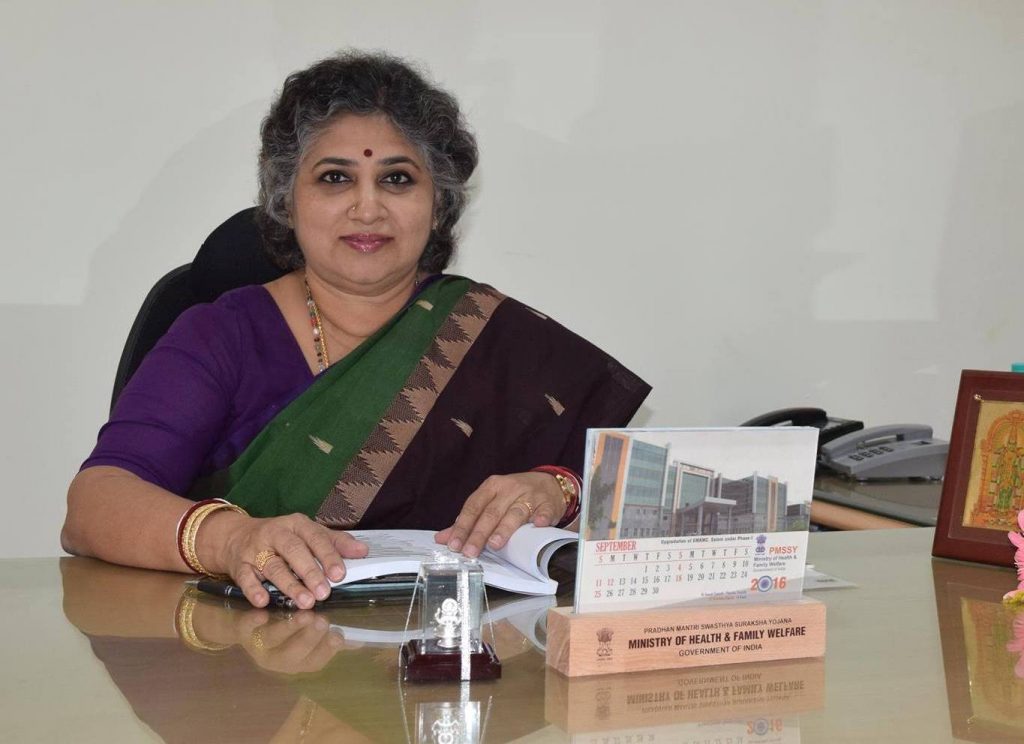Odisha, along with the entire country, is bracing for an impending third wave of Covid-19. Khurda district, which encompasses the state capital Bhubaneswar, has been bearing the brunt of the pandemic for a long time. Director of AIIMS Bhubaneswar, Dr Gitanjali Batmanabane, while speaking to Manish Kumar of Orissa POST, shares her valuable insights on the difficult circumstances, and the institution’s strategy against Covid as well as black fungus…
Why does Khurda still remain Covid-troubled?
People from different parts of the state and also from neighbouring states like West Bengal are coming to avail medical services in Bhubaneswar. As regular inflow of patients and their attendants continue, Khurda district bears the maximum burden of Covid-19 cases. Moreover, many people here are openly flouting Covid norms.
As per a survey, 40% of the vaccinated people have got infected. What are your thoughts on vaccine efficacy?
Scientific evidence suggests that the vaccine will not prevent infection but it will definitely help reduce hospitalisation and fatalities owing to Covid-19. At AIIMS too, we now see less number of vaccinated persons coming for admissions or dying due to the disease. Take our own case for example. Around 1,800 staffers of AIIMS, Bhubaneswar have contracted the virus till now but we didn’t see a single death. Also, there were fewer hospitalisations.
Is a third wave inevitable? When may Odisha face it?
We can expect many more waves and not just the third wave as the virus is mutating. There is no robust mechanism to precisely predict the next wave. It depends more on people’s behaviour. With responsible behaviour and more vaccination only, we can avoid such a wave and the resultant hospitalisation. Also, we can’t say for sure if the virus, after further mutation, is going to be more lethal or infectious.
What are the unique facilities that AIIMS-Bhubaneswar offers which are not available in other government set-ups?
There are many like the ECMO facility, brachytherapy and radio surgery. We have recently received a lithotripsy machine worth Rs 3 crore for treatment of stones without a surgery. Installation of PET-CT machine for cancer care is in progress. It is not available at any other government hospital in the state. We have paediatric flexible bronchoscope used in removing obstructions in the respiratory tracts of children. We are also the first to set up an electro-physiology lab for cardiac care which is used in cases with an irregular heartbeat. There are many others.
How did you continue treatment during Covid, lockdowns and shutdowns?
In extreme cases, we closed down walk-in OPD services but we continued indoor and emergency services. Also, when many private hospitals were shunning Covid patients, we continued services like delivery of pregnant women, dialysis and cancer treatment for those who were Covid positive. For OPD, we offered telemedicine, facilitated mobile apps for video consultations, connected with the state-run district hospitals for follow-up treatment of patients from across the state.
There were reports of shortage of black fungus drugs at AIIMS. What is the status now?
There is no shortage now. Earlier, we used to get around 60-70 vials per week but now we are getting around 400 vials a week. There was also misinformation that only liposomal Amphotericin B is effective against black fungus, but normal Amphotericin B is also effective. It is easily available and also needed in lesser amount than the former. We used it here and tackled the black fungus cases.
